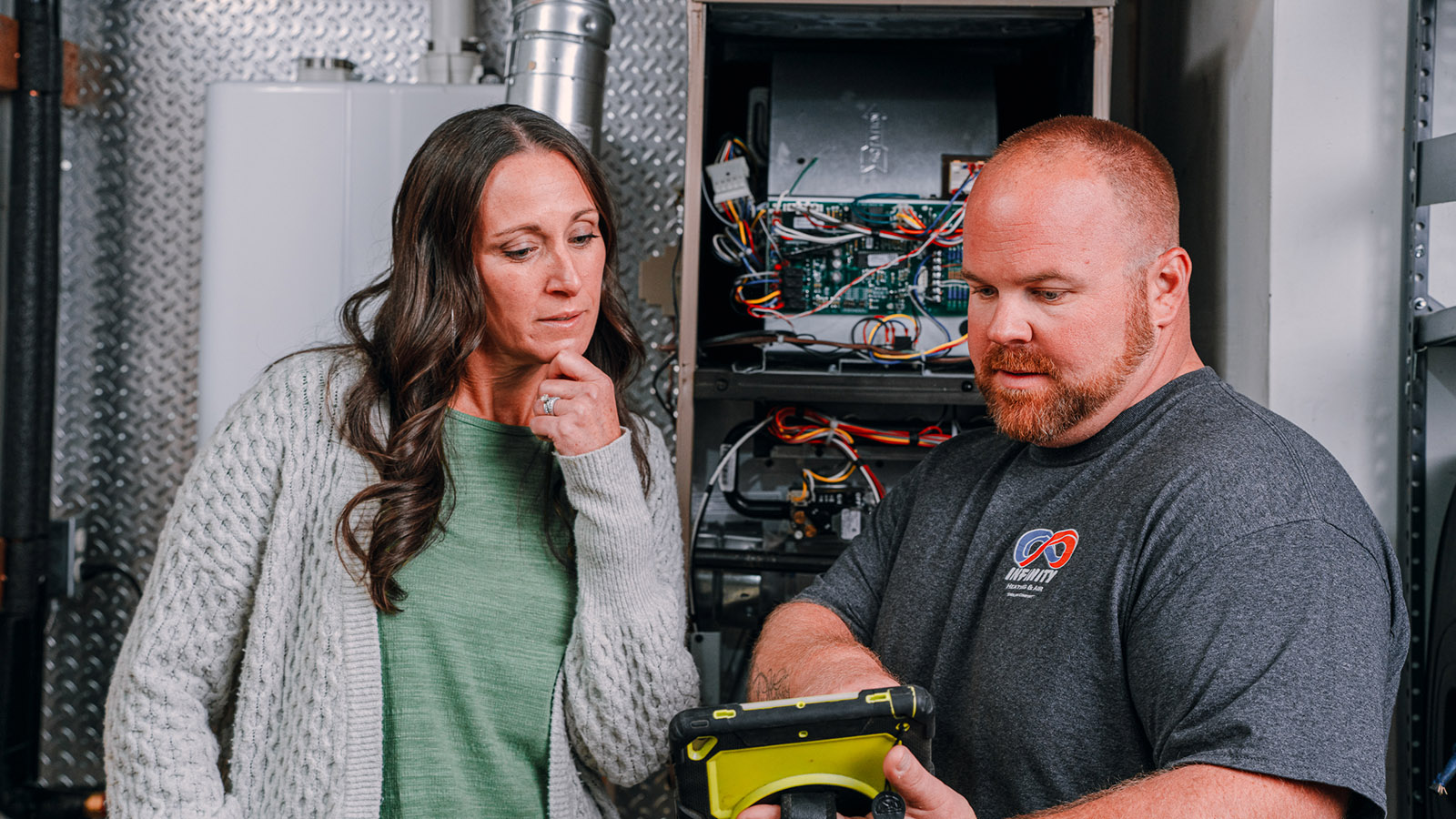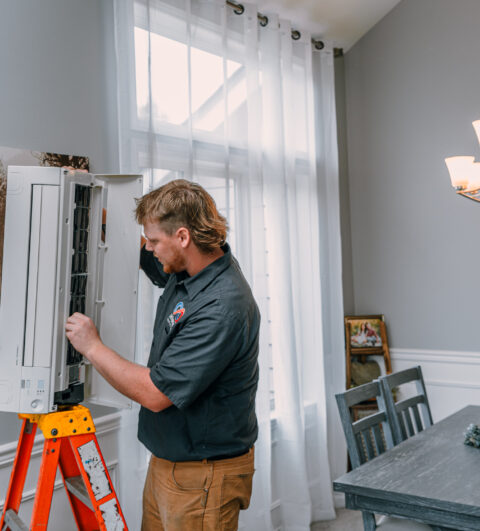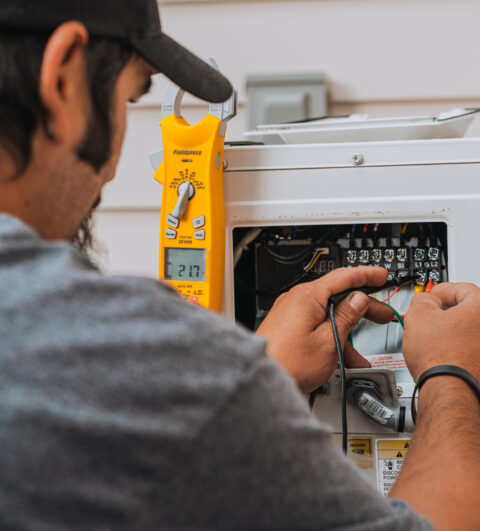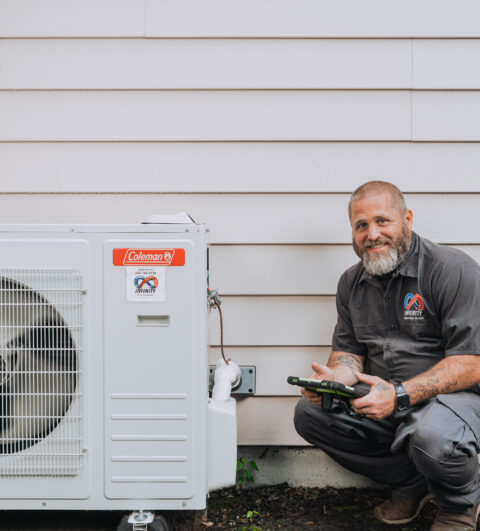Your HVAC system’s energy efficiency plays a key role in keeping your home comfortable while keeping your energy bills low. This article from the HVAC experts at Infinity Heating & Air will give you practical, effective tips to cut down on energy use and save money. From understanding where your HVAC uses the most energy to implementing smart upgrades, we've got strategies that work. Whether you're looking to fine-tune your existing system or considering a major upgrade, these insights will help you make informed decisions and reduce your energy footprint without sacrificing comfort. Let's dive into how you can achieve better efficiency with your HVAC system.
How To Reduce HVAC Energy Use
Your HVAC system’s energy efficiency plays a key role in keeping your home comfortable while keeping your energy bills low. This article from the HVAC experts at Infinity Heating & Air will give you practical, effective tips to cut down on energy use and save money. From understanding where your HVAC uses the most energy to implementing smart upgrades, we’ve got strategies that work. Whether you’re looking to fine-tune your existing system or considering a major upgrade, these insights will help you make informed decisions and reduce your energy footprint without sacrificing comfort. Let’s dive into how you can achieve better efficiency with your HVAC system.
How Your HVAC System Consumes Energy
What Uses the Most Energy in Your HVAC System?
The biggest energy user in your HVAC system is the compressor. This part works hard to heat or cool your home by controlling the temperature. Because it’s doing so much work, it uses a lot of power.
Why HVAC Systems Use A Significant Amount of Electricity
HVAC systems use a lot of electricity for a few reasons. First, if they’re old or not taken care of properly, they have to work harder and longer to keep your home comfortable. Also, if they’re not installed right, they can leak cool or warm air, wasting energy. Finally, the bigger your home, the harder your system has to work to keep the whole place feeling good.
Let It Run?
The Impact of Continuous Fan Use
Leaving your HVAC fan on all the time can really bump up your energy use. While it might seem like a good idea to keep air moving, doing this actually makes your system use more electricity. Turning the fan on only when you need it is a smarter move to help save energy.

Efficient HVAC Tips For Reducing Energy Use
Regular Maintenance and Servicing
Keeping your HVAC system in top shape is key. Think of it like a car; just as you’d get oil changes and tire rotations, your HVAC needs regular checks and cleanups too. This means staying up to date with changing filters, cleaning out ducts, and making sure everything runs smoothly. These simple steps help your system use less energy and keep your home comfortable.
Optimal Thermostat Settings
Finding the right temperature setting is a balance. You don’t want to freeze in winter or sweat in summer, but small adjustments can save a lot of energy. In winter, try setting your thermostat at 68°F when you’re awake and lower when you sleep. During summer, 78°F is a good spot when you’re home. Adjusting it to a more neutral setting when you’re out and about can add up to even more savings.
Get Smart! The Role of Smart Thermostats
Smart thermostats are game changers. They adjust your home’s temperature based on your habits and the weather. Leaving for work? It turns down. Coming back? It gets your home cozy again. Plus, you can control them from your phone, making it easy to save energy without sacrificing comfort.
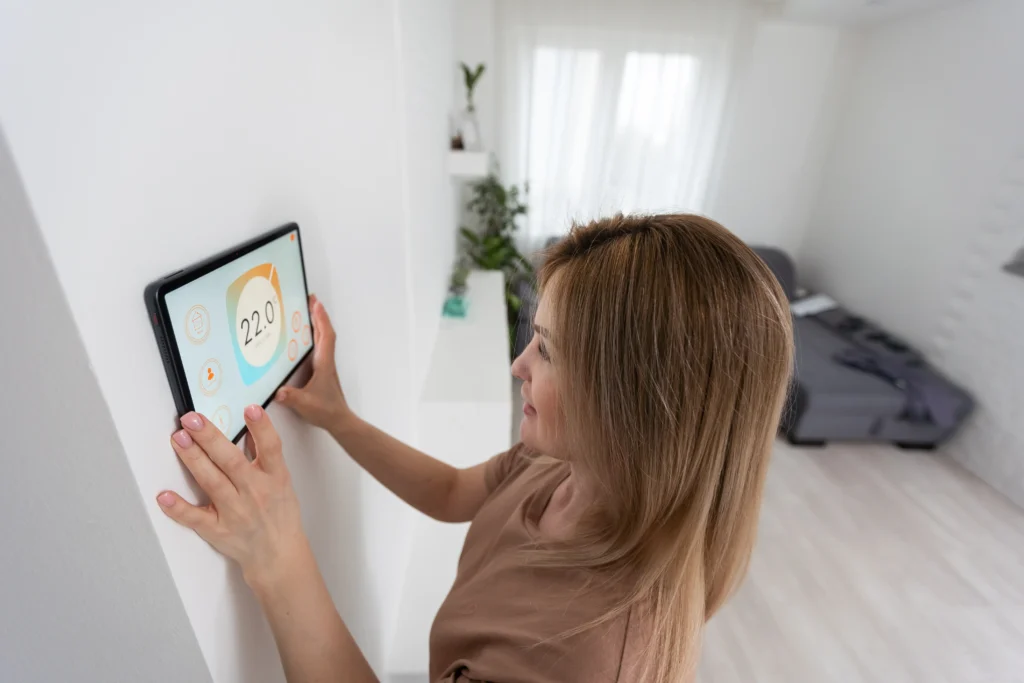
“Remember, an efficiently running HVAC system isn’t just about energy savings; it’s about extending the lifespan of your equipment. Regular maintenance and smart settings can reduce wear and tear, ensuring your system works effectively for years to come.”
Upgrade Your HVAC System For Better Energy Efficiency
The Value of Energy-Saving HVAC Models
Upgrading to a newer HVAC model is like swapping an old, gas-guzzling car for a fuel-efficient hybrid. These modern systems use the latest technology to heat and cool your home using significantly less energy. This not only reduces your carbon footprint but also cuts down on your energy bills month after month. Unlike older units that often work overtime to maintain temperatures, energy-efficient models achieve the same comfort levels with less effort and more savings.
Sealing and Insulation: Maximizing System Performance
For your HVAC system to truly excel, your home must hold onto the conditioned air it produces. That’s where sealing leaks and beefing up insulation come into play. Inspect your home for drafts around windows, doors, and ductwork. Sealing these leaks with weatherstripping or caulk is a cost-effective fix with immediate benefits. Meanwhile, bolstering insulation in key areas like attics, walls, and beneath floors acts like a thermal blanket for your home. It keeps warm air out during the summer and in during the winter. This dual approach reduces the strain on your HVAC system, extending its lifespan and enhancing its efficiency. Together, sealing and insulation are straightforward steps that lead to significant energy savings and improved home comfort.
Innovative Techniques to Further Reduce Energy Use
Integrating Solar Power For Clean Energy
Using solar power in your home can make your HVAC system more efficient and eco-friendly. By harnessing the sun’s energy, you can power your heating and cooling units, cutting down on electricity bills. Imagine your system running on clean energy from the sun, especially on bright days when cooling needs peak. This switch not only saves money but also supports a healthier planet.
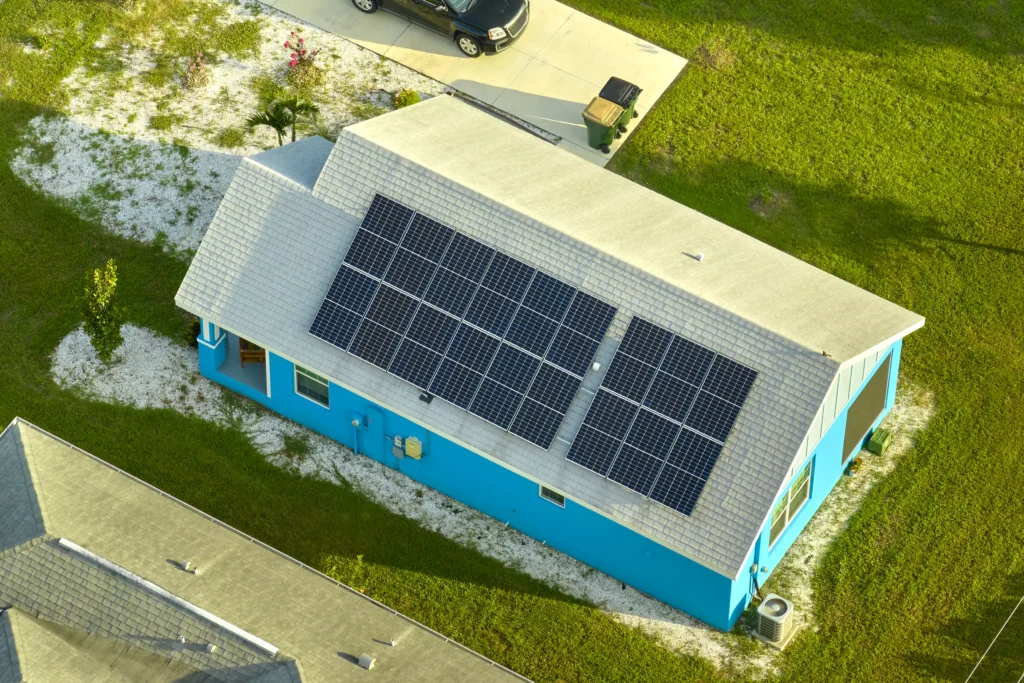
Zoning Systems for Customized Temperature Control
Zoning systems let you control the temperature in different parts of your home independently. For example, you might not need to heat your upstairs bedrooms during the day if everyone is in the living room. With zoning, you can set different temperatures for each area, avoiding waste and improving comfort. This means your HVAC doesn’t have to work as hard to heat or cool empty spaces, leading to energy savings and a more comfortable home environment.
The Truth Behind Some Common Misconceptions
Debunking HVAC Energy-Saving Myths
Many people believe that turning off their HVAC system when they leave the house saves energy. However, this can actually lead to more energy use. When you turn it back on, the system has to work harder to reach the desired temperature. A better approach is to adjust the thermostat a few degrees higher in summer or lower in winter when you’re away.
Another myth is that ceiling fans cool rooms. Fans cool people, not rooms, by moving air around. So, if you’re not in the room, turn off the fan to save energy.
Some think bigger HVAC units are always better. The truth is, an oversized unit can cycle on and off too frequently, reducing efficiency and wear down parts faster. Proper sizing of your HVAC unit is crucial for energy efficiency.
Finally, there’s a misconception that leaving lights on uses less energy than turning them on and off. In reality, turning off lights when you leave a room always saves more energy.
By understanding the facts behind these myths, you can make smarter decisions that truly reduce your HVAC energy use and save money.
Practical Tips for Immediate Results
Quick Fixes to Improve HVAC Efficiency
Small steps can lead to big savings. Begin by changing your air filters every two to three months. A clean filter allows air to circulate freely, reducing strain on your system and lowering energy consumption. Ensure no furniture or drapes are covering your vents; obstructed vents force your HVAC to work harder, increasing energy use. Adjusting your thermostat can also make a difference. In summer, setting it a few degrees higher when you’re out, and lowering it slightly in winter when you’re away, can reduce your energy bills without sacrificing comfort. Finally, check your windows and doors for leaks and seal any gaps. Even minor drafts can make your system work overtime to maintain the desired temperature.
When to Consider Professional HVAC Evaluation
Noticeable spikes in your energy bills, odd sounds from your unit, uneven temperatures throughout your home, or an HVAC system that’s more than a decade old signal it’s time for a professional check-up. An expert can uncover hidden issues, such as leaky ductwork or inefficient components, that aren’t always obvious. Regular professional assessments ensure your system is not only energy-efficient but also extends its lifespan, providing you with comfort and savings year-round.
Closing Thoughts
To boost your HVAC system’s efficiency, remember: keep up with maintenance, set your thermostat wisely, and consider upgrades like smart thermostats or energy-efficient models. Sealing leaks and insulating your home can also make a big difference. Taking steps toward energy savings not only cuts your bills but also extends your system’s life. We encourage you to start making these changes today. Small actions can lead to big savings and a more comfortable home for you and your family.
Why Choose Infinity Heating & Air
Infinity Heating & Air specializes in energy-efficient HVAC solutions that keep your home comfortable year-round. Our team takes pride in making sure each customer is satisfied with our service, knowing that a well-functioning HVAC system is key to a comfortable home. Choosing Infinity means you get reliable service focused on maximizing your system’s efficiency and reducing your energy bills. We stand by our work, offering maintenance and support that ensure your HVAC system runs smoothly for years. With Infinity, you get more than just heating and cooling services—you get a partner dedicated to your home’s endless comfort and health.

